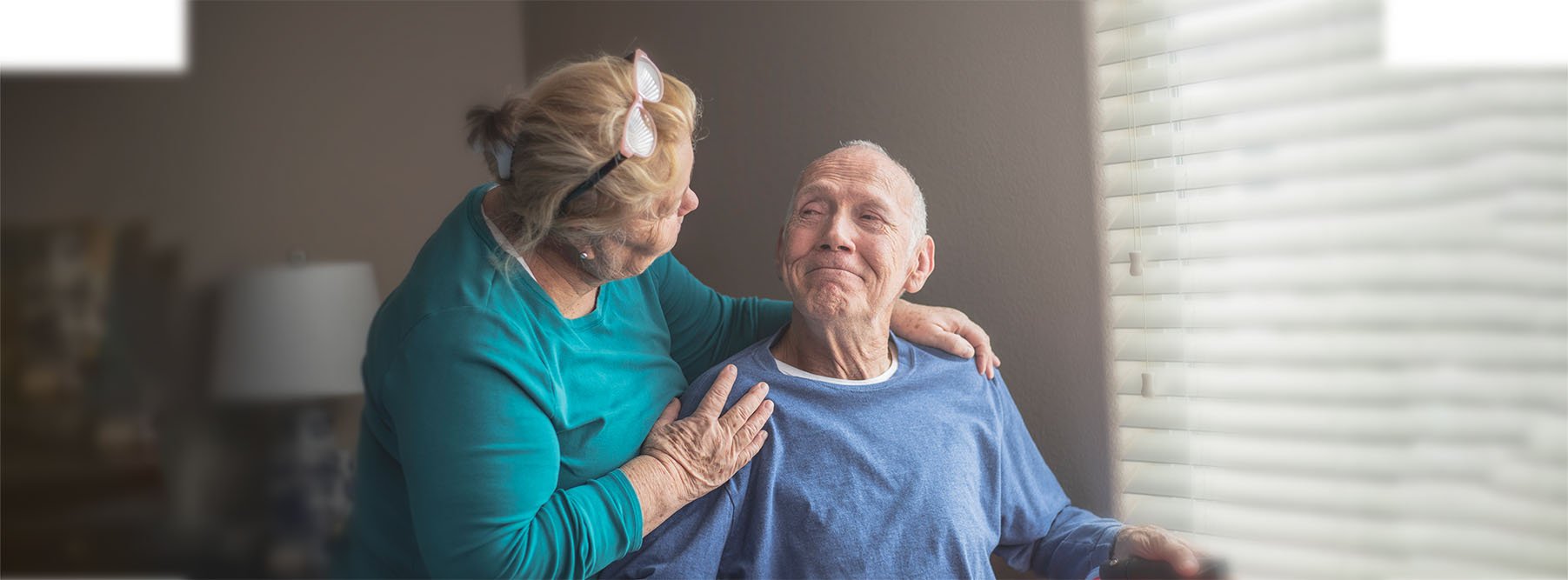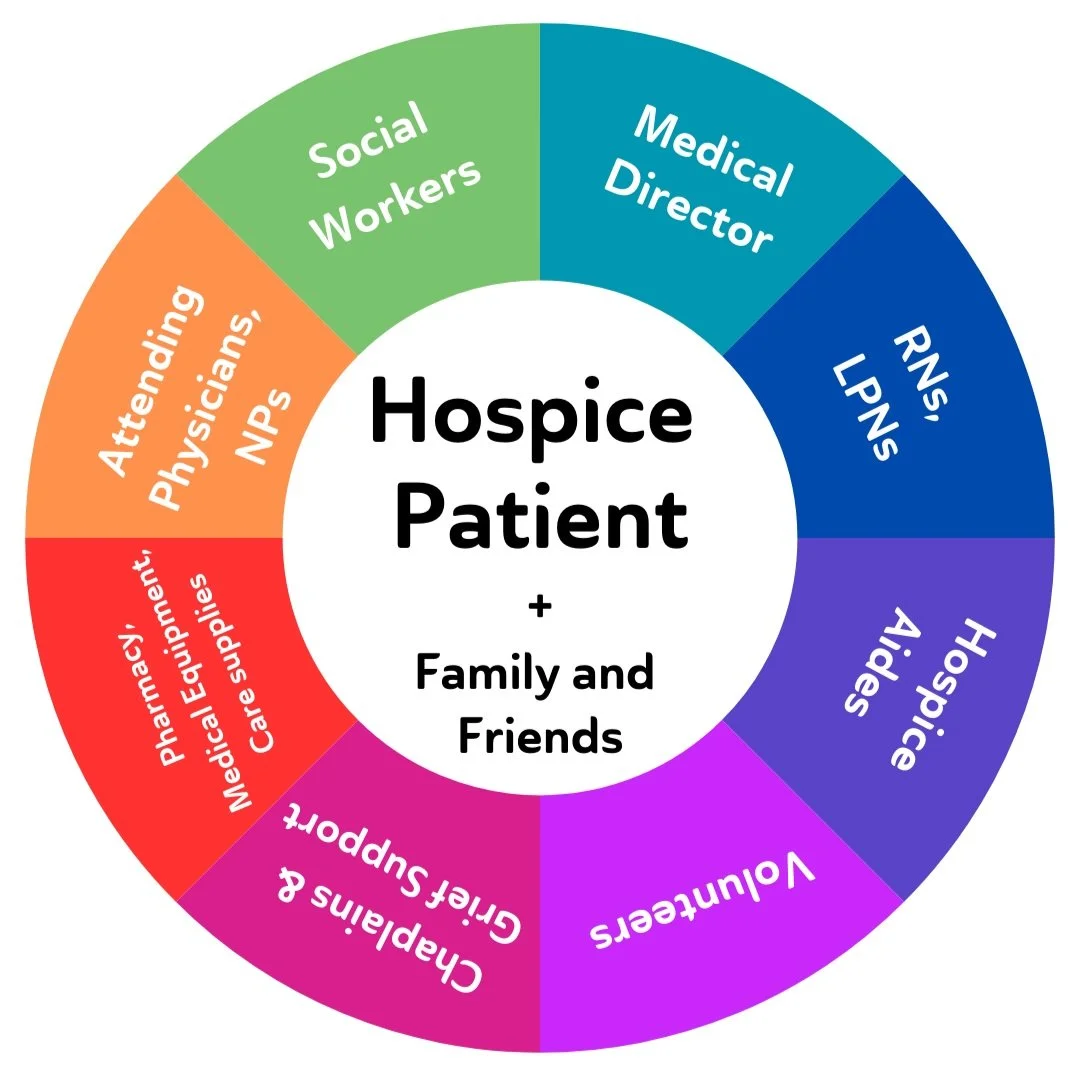
HOSPICE
Compassionate End-Of-Life Care for Patients and their Families
At the core of Cascade Health’s hospice philosophy is the belief that people deserve to be celebrated and attended to at the end of life as much as they are at the beginning. Our goal is to provide you and your loved ones with exceptional care and compassionate support so that you can concentrate on celebrating a life well-lived.
Cascade Health began offering Palliative Care in response to comments from families in our hospice program, who told us they wished that there was a way to access health education, pain management, symptom relief and emotional support earlier.
Your existing medical provider
Provides the initial diagnoses and refers you to hospice when the time is right.
Cascade Health Hospice medical director
Verifies your eligibility for hospice, assists in the development of your plan of care and consults with the rest of your team to make sure you get the best care.
Registered nurse
Helps you control symptoms, provides comfort care, educates you and your caregiver about what to expect and coordinates other services.
Hospice aide
Helps you and your caregiver with personal care, feeding, light housekeeping and other needs as needed.
Medical social worker
Helps you and your family develop coping strategies, refers you to community services as needed and provides counseling.
Chaplain
Provides spiritual care in alignment with your beliefs, including grief care.
Bereavement coordinator
Supports you and your family through the grieving process, including survivor support for a year after loss.
Volunteers and complementary therapists
Provide companionship, comfort care, support and practical assistance such as light housekeeping and errands.
How Hospice Helps You and Your Family
Hospice is, by design, whole-person care. When you become our patient, we get to know you, your family and your needs, goals, fears and hopes. We work with you to create a care plan customized to meet your lifestyle. We frequently check in with you, your family and each other to evaluate how well it is meeting your needs. This allows us to quickly modify your plan as circumstances evolve.
This approach is sometimes called the “Hospice Circle of Care” because your team encircles you with the care, resources and support to attend to your physical, emotional, social and spiritual needs. To meet the full range of your needs, your care team typically includes:
Cascade Health’s Hospice Circle of Care

How to Explore and Start Hospice
Although we know death is a natural part of life, making the decision to stop curative care and go on hospice is difficult for most people because they feel it is “giving up.”
But hospice is not the end, and it is not just for the last days of life. In fact, research shows that hospice patients live longer on average than non-hospice patients and enjoy a better quality of life. The earlier in the process you begin hospice, the more likely it is to make a positive difference for you. We encourage you to consider your end-of-life options early and share your wishes with your family long before hospice is needed to ease your decision-making process later and give you time to choose the best hospice provider for you.
As a nonprofit organization, helping you and your loved ones understand hospice and your end-of-life options is part of our mission to support compassionate healthcare in our community. A Cascade Health staff members can answer your questions and give you the information you need to decide if hospice is right for you. We also work with your physician’s office to secure the appropriate referrals if you are eligible and choose to move forward, or provide other options if hospice is not yet appropriate for you.
What to Expect When You Begin Hospice
When you decide to start hospice with Cascade Health, we meet with you and your family wherever you call home. The nurse and social worker talk with you extensively about your symptoms, end-of-life goals, emotional and spiritual needs, living situation and other topics. They:
✅ Form a care plan, including all members of the hospice team, that is suited to your needs, preferences, beliefs and other factors and review it with you to get your approval.
✅ Provide an overall orientation of the hospice program and review the information in the hospice binder with you.
✅ Ensure that you know how to contact Cascade Health Hospice at any time.
✅ Review the available services of the team’s chaplain, bereavement coordinator and medical social worker with you and ask if you would like to schedule visits with them. If so, they will contact you to set a time to visit and introduce themselves.
✅ Order appropriate medications, which are delivered to your door.
✅ Order medical equipment, such as an adjustable bed or oxygen. The medical equipment company will deliver and set up any equipment and train you and your loved ones in its operation.
✅ Answer any questions or concerns you may have.
✅ Create a preliminary schedule of visits that works for you and your caregiver.
You will always have control over your care plan and can request changes at any time.



